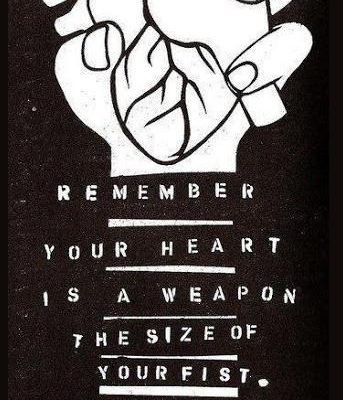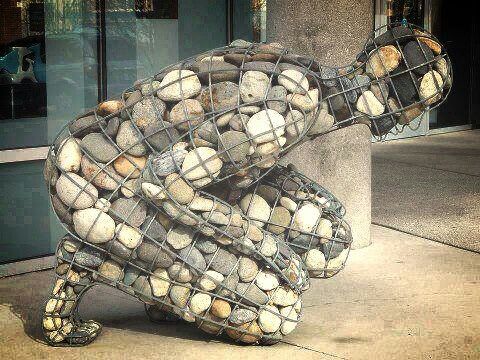This blog was originally hosted at Empty Cages Design.org as part of a series on Overcoming Burnout from 2016-2017. It has now been turned into a book that is available at: https://solidarityapothecary.org/overcomingburnout/
This current post has felt hard, but necessary, to write. I have so many middle class friends and comrades that I adore. This post certainly isn’t directed at everyone. It’s the culmination of years and years of organising in different projects, coming up against similar frustrations. It’s also the outcome of lots of conversations between working class mates and organisers who have felt the same.
It’s important to flag up that I’m writing this as a white and cis woman in England and I’m aware of the huge privilege that carries. I’ve been worried this post would ignite a bit of a backlash, so I’m asking middle class folks that are triggered by this to perhaps talk to other middle class people and not email me about it. For once, please I beg you, just listen and reflect. I’m feeling too burnt out and in too much physical pain to have to listen, carry or respond to more middle class entitlement.
At the end of the post I’ve listed some of the character traits of middle class friends and organisers who don’t drive me up the wall.
Anyhow, here goes nothing…
What makes me tired when organising with middle class comrades:
- Talking about the working class as a homogenous mass, makes me tired. Assuming certain things are working class and certain things aren’t is frustrating and annoying (in terms of really awful cultural assumptions and stereotypes). Likewise talking about working class people like they’re ‘scum’ or ‘sheep’ or ‘brainwashed masses’ is patronising and elitist. Or alternately talking about how you can ‘reach out’ to the working class is also pretty problematic.
- Romanticising certain aspects of different parts of working class culture is tiring, when growing up with fuck all money and zero financial stability is perhaps the least romantic thing ever.
- Talking about working class people like we’re the problem, is totally infuriating. As if our lifestyle choices are the determinant of various forms of systemic suffering. It is politically naive and dangerous.
- Fetishising intentional poverty, like it’s a game or adventure (anyone remember reading Evasion?) is an insult to folk who have no choice. Feeling judged because I actually want a livelihood so I don’t have to re-live the hell of not having any food in the fridge, is tiring. Unlike middle class people, we don’t have a safety net. We can’t play the romantic poor anarchist for ten years then inherit a trust fund. Flirting with poverty as a lifestyle choice is not the same as growing up in poverty.
- Middle class folk often interact with struggle like it is a game. You can pick and choose your campaigns and issues. You can decide when to stop or step back. You can take the moral high ground for focusing on certain issues, and you can judge anything that actually makes a difference to our lives as ‘reformist’ e.g. workplace organising, housing struggles, food access, prisoner support etc.
- Perhaps one of the more dehumanising experiences is when you’re treated like some kind of subject/object of study for academics. I literally left a prison-related conference in tears before. Being tokenised or used to further someone’s career is pretty grim. It’s put me off the world of academia forever (thank god there is no entry point for me anyway).
- You expect me, and other working class folk, to get excited about your projects, campaigns and initiatives when they are not relevant to our lives. We face much bigger barriers to organising, yet we’re somehow meant to do a ton of extra work on a life that is extremely challenging in terms of surviving day to day. There are no structures in place to support us to participate (e.g. travel expenses, child care support, food at meetings etc).
- We are generally organising on top of a whole bunch of other life challenges that you might not have. For example being carers or supporting mates in prison. Or recovering from trauma or the general gnarliness of alcohol, drug abuse, domestic violence etc. that you may have not experienced. (I’m very aware that not every middle class person has had a good childhood by the way, just trying to highlight common patterns).
- You more often than not judge our lifestyle choices and take positions of moral superiority. I think one of my favourite ever scientific studies was the one that showed people living on benefits had a lower carbon footprint than middle class ethical consumers.
- It’s exhausting and frustrating when you dismiss potential comrades because of their language, background or behaviour and fail to remember it takes time to learn/unlearn how we act. If I hadn’t had such solid self esteem, I would have abandoned all these movements years ago.
- It is alienating and disempowering when groups of people, in a room where middle class people dominate, talk about experiences like they are completely universal and normal. I spent a whole weekend with some folks once that repeatedly talked about which international trip they were going to take next. Seriously, it feels like we live on different planets.
- A common pattern I’ve observed over the last 15 years is that middle class folk are way more likely to ‘volunteer abroad’ or do sexy and exciting things, like go live in a tree-sit protest the other side of the world. Or participate in grim colonial projects like paint school walls in Africa or whatever. There is often a consistent failure to participate in any kind of grassroots or community organising in the UK and once again, working class organisers are left holding it all (and then being judged for not being radical enough, ha!).
- Projects and groups are picked on your needs and desires. You capitalise on opportunities that boost your career and ego or that you use for your own self promotion (like the academic that puts their name on the campaign press release).
- Middle class people can tend to dominate meetings, especially meetings and forums at public events. There is such a huge sense of entitlement that the whole world needs to hear your opinion and you have all the answers. Ever tried listening?
- Middle class people can tend to dominate movements and perpetuate a privileged position of non-violence. I’ve been at gatherings, protest camps etc. that have felt more like a sickly love-in with the police and power structures that be.
- It’s super tiring when middle class people make unsupportive comments on our writing, grammar or language. Not everyone has had the same level of education; try being supportive, not a judgemental asshole.
- It’s really patronising when you talk as if we’re not smart because we might not have a degree or whatever. In my early years of organising, I can’t tell you how many middle class men would explain things to me assuming I wouldn’t know what they meant.
- You leverage your privilege in response to repression. Whether this is with character references from people you know in similar positions of privilege, or simply having the financial support in your life which means you can focus on legal work. You don’t think about the repercussions this can have on people that can’t play this card.
- Middle class people tend to perpetuate certain paradigms, especially new age worldviews. I’m sorry but working class people are not responsible for ‘manifesting’ abuse or poverty. Yes, positive thinking, thinking ‘abundantly’ etc. is most likely useful, but wouldn’t it be more useful if everyone pro-actively participated in struggling to re-structure society economically and socially? Maybe stick that on your vision board?
- Even self care is affected by class. Not everyone can go squat in a sunny country, or afford decent food or have the time to go to a yoga class. Yet the responsibility of self care is placed on the shoulders of the individual, and not worked for collectively.
- And finally, what I’ve observed over and over again is this inherent need for middle class people to censor, control and mediate emotions. People have a really deep fear of conflict. A deep fear of losing status and control. Like being told to be less angry on demos, or less emotional at events, or even to be more serious. Stop telling me how to feel! When you’ve had a life of teachers, social workers, prison screws, probation officers etc., treating you like you’re a piece of shit and telling you how you should feel (and how you should act) you really don’t need the same mediating middle class behaviour in your collectives that are actually trying to fight for a different way of living.
So what does this have to do with burnout?
- Navigating this stuff constantly is exhausting.
- Never feeling like you fit in to certain groups or spaces is disempowering, isolating and alienating.
- It is hard to feel supported by people who don’t share your reality. You lose affinity with people, groups and networks and are more likely to burn out or drop out.
- Fighting the state or whatever organising endeavour you are doing is hard enough already without navigating a maze of middle class entitlement.
- Movements fail to offer you anything that can realistically improve your life or make surviving capitalism easier.
Like I said at the beginning of the post, I do work with some middle class comrades who I adore. I tried to think about what made them different:
- They totally own up to their privilege. They’re honest about it. They take the piss out of themselves. They don’t try to be something they’re not.
- They’re empathetic but not judgemental or patronising. They don’t pretend to have lived a different life than they have.
- They take risks and do frontline work that threatens their privilege. They don’t expect it to be anyone else’s responsibility. Likewise they do the boring behind the scenes work too.
- They leverage their privilege to support others. That might be lending someone money, or giving them a free place to stay for a while. Or it might be informally mentoring someone to improve their writing etc.
- They’re aware of their speech and behaviour, how they phrase things etc. so they are not offensive.
- They don’t dominate meetings or movements or think they have all the answers.
- They practically support people to participate by being militant that events are structured to support people to get stuck in (e.g. child care, travel expenses). No one’s energy or input is taken for granted.
In my next post I hope to write more about what is nourishing and what is draining about organising, so that we can all start to create more liberating and regenerative ways of working together.




